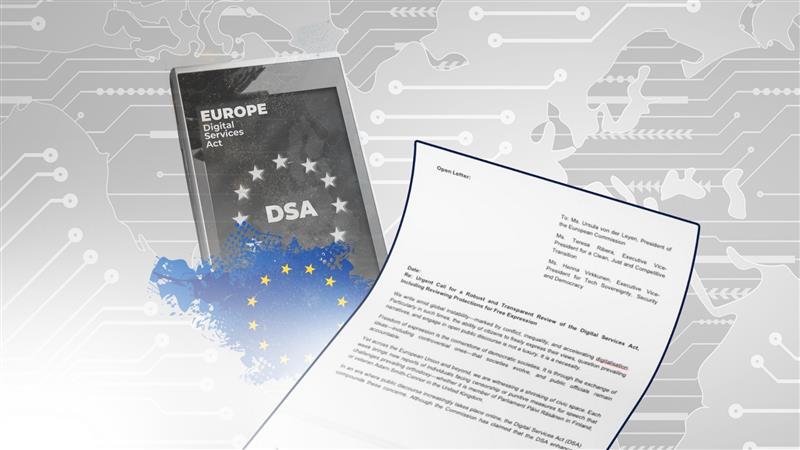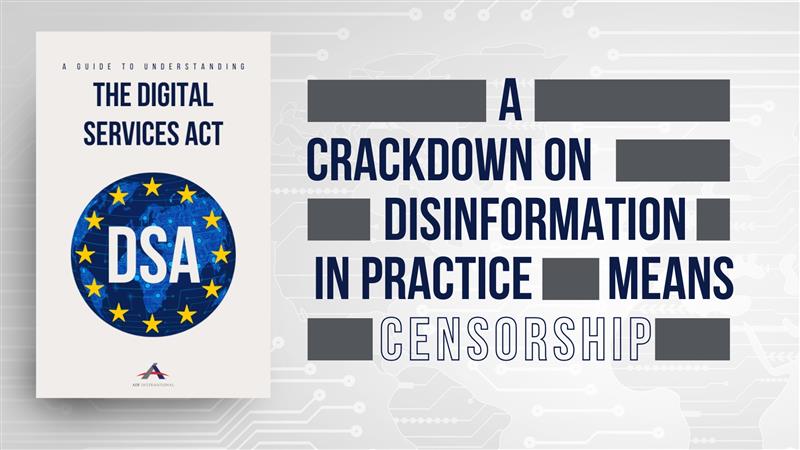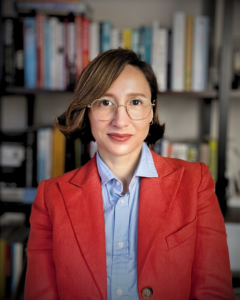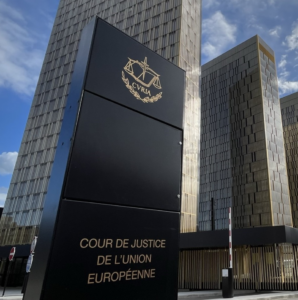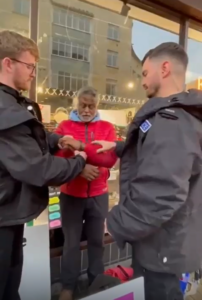Signatories*
The signatories of this letter are united in their commitment to free speech, and represent a diverse range of viewpoints. We affirm that it is only by free and open debate that we will be able to tackle the issues of our day — a prerequisite for a flourishing society. It is in this spirit that we join together with this letter to support a free and open public square.
Ayaan Hirsi Ali – Research Fellow, Hoover Institution, Stanford University, Founder of the AHA Foundation
Prof. Paul D. Aligică – Professor, University of Bucharest
Gilbert Andres – Chairperson, Advocates for Freedom of Expression Coalition, Southeast Asia
Cristian Araya – Member of Congress, Chile
Stephen Nikola Bartulica – Member of the European Parliament
Stephen Baskerville, PhD – Professor of Political Studies, Collegium Intermarium, Warsaw
Ludek Bednar – Publicist and Ex-Dissident of the Communist Regime
Sabine Beppler-Spahl – Chair Freiblickinstitut e.V.
Hedwig v. Beverfoerde – Spokeswoman of DemoFürAlle
Laoise de Brún BL – CEO & Founder, The Countess
Dr. Peter Boghossian – Founding Faculty Advisor, University of Austin
Eduardo Bolsonaro – Member of Congress, Brazil
Sam Brownback – Former US Senator, Former US Ambassador-At-Large for International Religious Freedom
Ivo Budil – Professor of Anthropology and University Teacher
Javier Villamor Cantera – Journalist
Paul Coleman – Executive Director, ADF International
Leonardo Correa – Lawyer, 3C Law, Brazil
Rodrigo Iván Cortés – Former Member of Congress, Brazil
Ivan David – Member of the European Parliament
Seth Dillon – CEO, The Babylon Bee
Mihaela Djorgova – Psychologist, Chairman and Co-Founder of the Association Society and Values, Bulgaria
Misa Djurkovic, PhD – Head of the Center of Geopolitics, MCC Budapest and Researcher, Institute of European Studies, Belgrade
Katerina Dostalova – Art Gallery Owner
Klara Dostalova – Member of the European Parliament
Rod Dreher – Author and Journalist
Petr Drulak – Professor of Politology and Former Czech Ambassador
Chris Elston “Billboard Chris” – Child Protection Advocate, Free Speech Activist
Ellen Kryger Fantini – Deputy Editor of The European Conservative
Ján Figel’ – President FOREF Europe, Slovakia, Former European Commissioner
Paulo Figueiredo – Journalist, USA/Brazil
Angeline Furet – Member of the European Parliament
Elio A. Gallego García – Chair of Philosophy of Law at San Pablo CEU University and Founding Member of the Spanish Law & Liberty Circle
Robert P. George, JD, DPhil, DCL, DLitt – McCormick Professor of Jurisprudence, Princeton University
Asterios Thomas Girbas – Attorney at Law, PhD candidate, University of Athens, Greece
Jan Gregor – Vice-Chairman, Alliance for Family, Czech Republic
Branko Grims – Member of the European Parliament
Wayne Grudem, PhD – Distinguished Research Professor Emeritus of Theology and Biblical Studies, Phoenix Seminary, USA
Brice Hamard – Lawyer and Civil Society Leader
Kaspars Herbsts – Member of the Board of Association “Ģimene”, Latvia
Patrick-André de Hillerin – Journalist
Prof. Dr. Ralf Hӧcker LL.M. – Attorney-at-law, Cologne, Germany
Andrea Hoffman – Lawyer, Instituto Isabel, Brazil
James Holland – European Parliament Advisor
Zdenek Hraba – Senator, Czech Republic
Ginka Hrisova – Founder of the International Legal Advice Center (ILAC)
Ladislav Ilčić – Former Member of the European Parliament
Ladislav Jakl – Former Secretary of the Czech President Václav Klaus
Jean-Marc Potdevin – Member of Esperalgo and the Former VP of Yahoo Europe
Cecilie Jilkova – Writer, Daughter of Czechoslovak Dissidents
Virginie Joron – Member of the European Parliament
Fernand Kartheiser – Member of the European Parliament
Daniel Kaiser – Echo Weekly Columnist
Birgit Kelle – Journalist and Bestselling Author, Germany
Dr. Michael Kinsella – Director, Digital Justice Institute
Viktor Kostov, PhD – Lawyer, and Missiologist, Freedom for All
Ondrej Knotek – Member of the European Parliament
Kyriakos Kotsoglu – Associate Professor, School of Law, Northumbria University; Research Fellow
Daniela Kovářová – Senator, Czech Republic
Dr. Gudrun Kugler – Member of Parliament, Austria
Madeleine Lacsko – Journalist and Writer, Brazil
Agustín Laje – Author and Political Scientist
Jan Ledóchowski – President of Platform Christdemokratie
Alix Lejard – EU Delegate, Femina Europe
Dr. Norman Lewis – Visiting Research Fellow, MCC Brussels
Dr. James Lindsay – President of New Discourses
Stéphane Luçon – Journalist, DSA Article 53 Complainant
Paul Marshall – Baylor University, Hudson Institute, Religious Freedom Institute
Dr. Javier Martínez-Torrón – Professor of Law, Complutense University, Madrid, Spain
Pavel Matocha – Member of the Czech Television Council
Ann E. Mayer – Associate Professor Emeritus of Legal Studies, The Wharton School, University of Pennsylvania
Alan Miller – Together Association
Dr. Calum Miller – Medical Doctor, Research Fellow, University of Oxford
Saloméja Fernandez Montojo – Assistant Professor of Mykolas Romeris University, Lithuania
R. Albert Mohler, Jr. – President, The Southern Baptist Theological Seminary
Dra. María Jesús Gutiérrez del Moral – Professora Titular Acreditada Catedràtica, Degana de la Facultat de Dret / Dean Faculty of Law, Universitat de Girona
Michaela Moravčíková – Faculty of Law, Trnava University, Slovakia
Carol Nolan – Member of Parliament, Ireland
Brendan O’Neill – Chief Political Writer, Spiked
Sarah O’Reilly – CEO, Free Speech Ireland
Rafael Palomino – Professor of Law, Universidad Complutense de Madrid, Spain
Sylvie Perez – French Author
Andrea Piccioti-Bayer – Director, The Conscience Project
Margarita de la Pisa – Member of the European Parliament
Jaroslava Pokorná Jermanová – Member of the European Parliament
Laetitia Watteau Pouliquen – Advocacy Director at NBIC Ethics
Gabriel Quadri – Member of Parliament, Mexico
Dr. Aaron Rhodes – Author, Former Executive Director of the International Helsinki Federation for Human Rights, and Former President of the Forum for Religious Freedom-Europe
Prof. Etienne de Rocquigny – Chairman, Espérance & Algorithmes Think-tank, Founder, Blaise Pascal Advisors
Patricia Santos Rodríguez – Editor in Brussels for El Debate, Professor of Philosophy of Law, University CEU San Pablo Madrid, Spain
Robert Roos – Former Member of the European Parliament
John Rosenthal – Independent Scholar and Journalist
Pedro Tenorio Sanchez – Catedrático de Derecho Constitucional
Henk Jan van Schothorst – Executive Director CCI
Maimon Schwarzschild – Professor of Law, University of San Diego
Michael Shellenberger – CBB Chair of Censorship, Politics, & Free Speech at the University of Austin & Founder, Civilization Works. Twitter Files
HyoSung Shin – Visiting Professor, PhD in Law, Department of Law and Public Administration, Myongji University
John Theodore Steenhof – Principal Lawyer, Human Rights Law Alliance Limited, Australia
Joachim Nikolaus Steinhöfel – Attorney and Bestselling Author
Karolina Stonjekova – Political Columnist
Nadine Strossen – Senior Fellow, FIRE, Former President, American Civil Liberties Union (1991-2008)
David Thunder – Ramón y Cajal Researcher, Institute for Culture & Society, Religion & Civil Society Project, Biblioteca de Humanidades, University of Navarra
Laurence Trochu – Member of the European Parliament
Carl R. Trueman – Fellow at the Ethics and Public Policy Center, Washington, D.C.
George Tryfiates – Vice President for Public Policy and Legal Affairs, Association of Christian Schools International
Filip Turek – Member of the European Parliament
David Vandeput – President of Voorzitter, General Secretary of the Federal Synod of Protestant and Evangelical Churches in Belgium
Daniel Vavra – Free Speech Society Co-Founder
Vlastimil Vesely – Director, The Free Speech Society, Czech Republic
Kristen Waggoner – President & CEO, Alliance Defending Freedom / ADF International
Andrew. T. Walker – Associate Professor of Christian Ethics and Public Theology, The Southern Baptist Theological Seminary
Godfrey Yogarajah – General Secretary, National Christian Evangelical Alliance of Sri Lanka and Ambassador for Religious Freedom, World Evangelical Alliance
Lord Toby Young – Founder & General Secretary, Free Speech Union
Sergio Zaragoza – México Elige, Mexico



